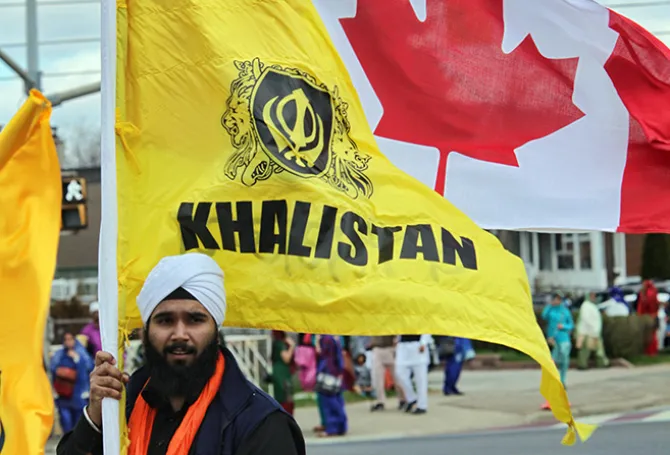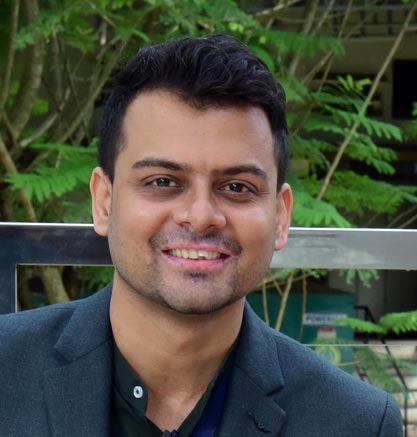-
CENTRES
Progammes & Centres
Location
Statecraft needs more than just diplomacy. This bilateral crisis with India exposes Trudeau to be lacking in these key qualities.

Image Source: Getty
There has been a consistently malicious pattern in Canadian domestic politics that has now spilt over uncontrollably to impact its relationship with India, primarily due to the incubation, political patronage and deliberate denial of such activities in Ottawa. This has been particularly characteristic of the Liberal Party in Canada. Probably, the strongest diaspora connect between any two countries in the world, which otherwise could have been used for building a cultural and economic bridge, is now being withered away for immediate domestic political sustenance and future gains. This diaspora in Canada, though diverse, includes a section that identifies with the anti-India Khalistan movement. With political support behind them from the very top, various factions of the Khalistan movement have now found a political foothold and the agency to voice their concerns against India while mobilising funds and human resources, often with substantial organisational and institutional support, a phenomenon hitherto unseen in the Canadian domestic landscape.
Regular referendums held in support of the secession of an imaginary Khalistan also point toward a certain degree of state complicity in Canada.
The influence of this evolving Canadian political landscape has manifested in various ways even outside Canada. Notably, pro-Khalistan groups across different countries such as the United States (US), United Kingdom (UK), and Australia have now surfaced by means of political assertion. The two most prominent groups include the “Sikhs for Justice” and the “Khalistan Tiger Force” both of which have a strong presence in Canada. What is notable is that there has been an uptick in the pattern of funding, institutional support, and mobilisation. Regular referendums held in support of the secession of an imaginary Khalistan also point toward a certain degree of state complicity in Canada. Justin Trudeau's political survival is also closely tied to the support of the New Democratic Party (NDP)—led by Jagmeet Singh, which adds a layer of complexity to the situation. Given the delicate political margin that Trudeau’s Liberal Party holds over the Conservative Party since the last election, maintaining this support is crucial for Trudeau's political future. It's not surprising that the New Democratic Party (NDP) of Canada has openly supported Khalistan elements, as have elements within the Liberal Party. While this political manoeuvring may serve certain domestic interests, it does no good to Canada's relations with India. The growth of anti-India activities is closely linked to increasing financial mobilisation, facilitated by individuals like Hardeep Singh Nijjar using dubious financial structures and institutions, often operating without proper oversight and audit. This situation makes it challenging to control the agendas and motivations of these groups.
Given the delicate political margin that Trudeau’s Liberal Party holds over the Conservative Party since the last election, maintaining this support is crucial for Trudeau's political future.
The current crisis between Canada and India over the alleged involvement of India in the assassination of Hardeep Singh Nijjar, a known Khalistani element, has highlighted a few critical aspects which go beyond just the threats to India’s sovereignty and territorial integrity. Firstly, it has underscored the shortcomings of Canada's immigration system, allowing individuals with controversial backgrounds to become citizens and exploit that status to target other countries. This poses a significant challenge to maintaining strong bilateral relationships in today's interconnected world. Secondly, Canada’s stand on the current issue is seeking to legitimise and even normalise the fact that it is the state’s discretion to give secessionist space to elements from outside in the garb of preventing the core values of liberal democracy. In this regard, Ottawa should wait for its own province of Quebec to catch up on the list of strong domestic political agendas inside Canada. The rise of the Bloc Québécois, a party seeking the largely French speaking province Quebec's sovereignty, is worth noting which is akin to a subdued form of national secessionism in Canada’s own backyard. Imagine if India allowed a group supporting a provincial secession in Canada. Such a scenario would not be conducive to maintaining positive bilateral relations. On the contrary, India has prioritised external relations over narrow domestic political gains, even with China in the past.
The current crisis between Canada and India over the alleged involvement of India in the assassination of Hardeep Singh Nijjar, a known Khalistani element, has highlighted a few critical aspects which go beyond just the threats to India’s sovereignty and territorial integrity.
Furthermore, these anti-India activities, justified under the banner of freedom of expression, are, in reality, a distortion of this fundamental democratic principle. Freedom of expression, while important, comes with the caveat of a certain degree of reasonableness in most democracies, which inherently include safeguards to ensure that unfounded and escalatory rhetoric does not harm the nation’s internal cohesion and external relations. It is for the leaders to show statecraft when exercising these powers bestowed in democracies. The ongoing tension between India and Canada underscores that the stability of seemingly strong and stable ties in international relations are often only poised on the balance of delicate and sensitive issues in bilateral relationships. It is the leadership and statecraft which is obligated to maintain poise and yet convey own deepest concerns to the other party in a way which doesn’t disturb the equilibrium. Clearly, the opposite was on display even as the Canadian Prime Minister put the horse before the cart in deciding to not just allege the involvement of India in Nijjar’s assassination but also evicting an Indian diplomat. If anything, it should have been India taking pre-emptive steps to close its embassies and consular offices and leave Canada when its diplomats across Canada, UK, and the US faced death threats. India acted with the necessary poise.
The ongoing tension between India and Canada underscores that the stability of seemingly strong and stable ties in international relations are often only poised on the balance of delicate and sensitive issues in bilateral relationships.
It is surprising that Trudeau’s political decisions seems wanting of a lesson in traditional statecraft, despite a generational advantage over others in his country in state leadership—his father Pierre Trudeau having served as the prime minister of Canada between 1968 to 1979 and from 1980 to 1984. As Harold Nicolson has pointed that statecraft needs more than just diplomacy. It combines construction of strategies with their implementation to secure national interests. In one fell swoop, Trudeau exposed himself as severely lacking of these qualities. Finally, the bilateral crisis with Ottawa poses a test for India's diplomacy as well. Expelling diplomats by Justin Trudeau was an unfortunate move that necessitated a response from India. While these extraordinary circumstances challenge India's decision-making, New Delhi should take it in its stride. As India grows in economic power and political influence; the fractures of the current world order becomes more gaping and the path to hedging becomes narrower than before, the frequency of these tricky decisions which push the notional boundaries of India as a ‘soft state’ is likely to grow.
Vivek Mishra is a Fellow with the Strategic Studies Programme at the Observer Research Foundation
The views expressed above belong to the author(s). ORF research and analyses now available on Telegram! Click here to access our curated content — blogs, longforms and interviews.

Vivek Mishra is Deputy Director – Strategic Studies Programme at the Observer Research Foundation. His work focuses on US foreign policy, domestic politics in the US, ...
Read More +